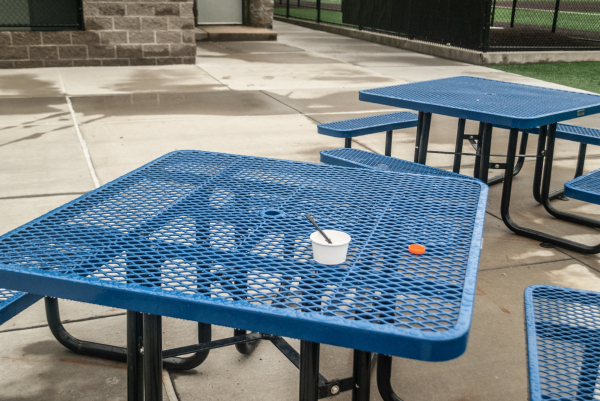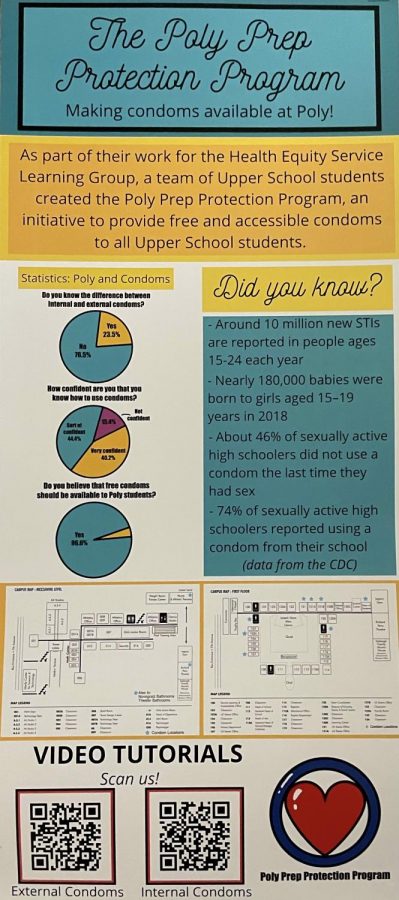Poly Protection Team Creates New Program
This fall, a new system was put in place on campus that provides students with the access to condoms through a program created by the Poly Protection Team. Last spring, a group of Upper School students from the Health Equity Service Learning Team, run by Sarah Zuercher, the director of health and well-being at Poly, created the unofficial Poly Protection Team, which aims to encourage and destigmatize conversations about sex, specifically safe sex, as well as provide Poly students with free and accessible condoms.
“We came up with this project because we thought it would be a great initiative to not only promote safe sex among Upper School Poly students but also to spread awareness and normalize discussions around these kinds of topics,” said sophomore Lulu McDonald, a member of the Poly Protection Team. “Sex, in general, is a really taboo subject, particularly with teenagers, but the reality is that it’s a really important thing to talk about—especially with issues around consent and STIs.”
The Poly Protection Team distributed female and male condoms in bowls in each dean’s office and the nurse’s office, and bins will soon be installed in bathrooms on the first floor, in the Novogratz Center, and in the theater. McDonald said that the Health Equity Service Learning Team provided both female (or internal) and male (or external) condoms “because they are simply for different parts of the body.” Adding on, Zuercher, McDonald’s mother, said, “But don’t use both at the same time! That is bad! Internal condoms prevent pregnancy and help protect vaginal tissue or the anus/rectum against STI exposure.”
The student body seemed to have a positive reaction to the introduction of contraception on campus. At the Upper School orientation day assembly, the Chapel audience broke into laughter, chatter, and applause when the Poly Protection Team—which is composed of McDonald along with sophomores Mary Lin and Nathan Nguyen and juniors Tesvara Jiang and Leo Wang—went up on stage to introduce the condom program.
McDonald shared that the team’s main concerns with the installment of condom bins at school were pushback from students, teachers, and parents or the misuse of condoms. However, despite their anticipations, there hasn’t been any significant backlash from the community.
Freshman Annakaecia Clarke noted that the bins might be more effective if they included more information about how to use each condom. “Although students could ask their dean for further information about them, deans aren’t always available. I think having a sheet or card with information about each condom could be very useful. It could also include comparisons between each brand and the benefits that each brand provides, such as their rate of effectiveness,” Clarke said. “In addition, unless this is already given on the condom itself, it could have information on how to use the condom, which would be helpful for first-time users.”
As the program gets underway this year, McDonald hopes that overall the project will help students not only navigate sex but also move past some of the discomfort they experience when talking about it.
“The word ‘condom’ has just been completely desensitized for our whole team,” said McDonald. “We’ve said it so much it doesn’t have the same nervous-laughing connotation anymore. So the goal with providing condoms at Poly is essentially to do just that—normalize these issues and prevent a few pregnancies and STIs along the way.”



























